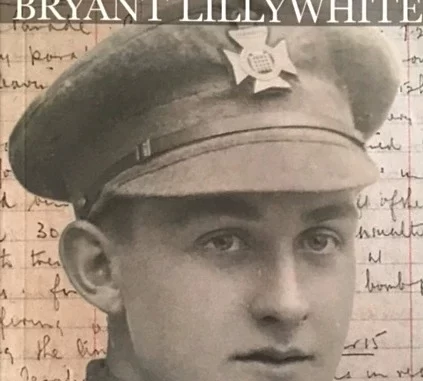
This book covers the wartime service of Bryant Lillywhite, who served in the 1/16th Battalion, London Regiment (Queen Westminster Rifles) before transferring to the Royal Flying Corps. The manuscript was written by Lillywhite after the Great War and integrated his diary entries with letters sent home to his parents.
The bulk of the book focuses on Lillywhite’s experience as a private manning trench from November 1914 to the summer of 1915 when he was wounded and medically evacuated from the line. His diary contributes to the existing literature on World War I by presenting a soldier’s day-to-day life on the Western Front. His observations cover a range of topics familiar to the genre: the conditions of trench warfare, interactions with authority, the coping mechanisms soldiers employed to deal with the physical and psychological strains of the war, and moments of human connection amidst the conflict. The diary entries detail the quality of life in the trenches, from the mundanity of daily routines to the challenges posed by the environment and military hierarchy.
One aspect where Lillywhite’s diary stands out is in its candid descriptions of life in the trenches, including the makeshift solutions soldiers devised to improve their living conditions, their creative efforts to maintain morale, and the impact of disease and injury. His account of the Christmas truce of 1914 is another highlight, offering a personal perspective on this well-documented ceasefire.
After Lillywhite was wounded he spent much of the war recovering. After recuperating, he transitioned to the Royal Flying Corps, the air arm of the British Army before it became the Royal Air Force in 1918. Following the war, Lillywhite shifted away from military life to pursue scholarly and literary interests, notably contributing to the historical record with publications such as London Coffee Houses: A Reference Book of Coffee Houses of the Seventeenth, Eighteenth and Nineteenth Centuries (1963) and London Signs: A Reference Book of London Signs from Earliest Times to About the Mid-Nineteenth Century.
Lillywhite’s account enriches existing narratives with its detailed depiction of a soldier’s life on the Western Front, his subsequent service in the Royal Flying Corps. It adds depth to our understanding of the daily experiences and challenges faced by soldiers, offering a nuanced perspective that complements broader historical analyses. This publication, through its personal and detailed insights, provides a meaningful contribution to our collective memory of the Great War, underscoring the importance of individual experiences in the larger tapestry of history.

